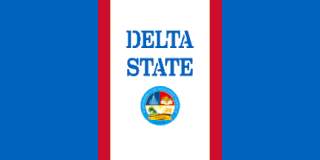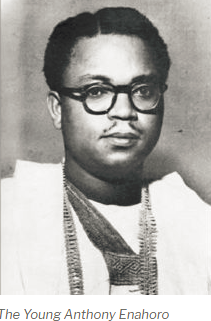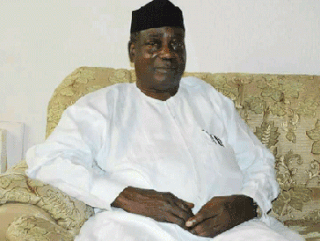Related Research Articles

Chukwuemeka "Emeka" Odumegwu Ojukwu was a Nigerian military officer and politician who served as President of the Republic of Biafra from 1967 to 1970 during the Nigerian Civil War. He previously served as military governor of the Eastern Region of Nigeria, which he declared as the independent state of Biafra.

Shehu Usman Aliyu Shagari was a Nigerian politician who was the first democratically elected president of Nigeria, after the transfer of power by military head of state General Olusegun Obasanjo in 1979, which gave rise to the Second Nigerian Republic.

Yakubu Dan-Yumma "Jack" Gowon is a Nigerian former Head of State and statesman who led the Federal military government war efforts during the Nigerian Civil War.

The Ijaw people, also known as the Ịjọ people, are an ethnic group found in the Niger Delta region in Nigeria, with primary population clusters in Bayelsa, Delta, and Rivers. They also have significant population clusters in Edo, Ondo and small parts of Akwa Ibom.

Delta State is a state in the South-South geopolitical zone of Nigeria. Named after the Niger Delta—a large part of which is in the state—the state was formed from the former Bendel State, on 27 August 1991. Bordered on the north by Edo State, the east by Anambra and Rivers states, and that south by Bayelsa State while to the west is the Bight of Benin which covers about 160 kilometres of the state's coastline. The state was initially created with 12 local government areas in 1991, but was later expanded to 19 and now has 25 local government areas. Its capital city is Asaba which is located along the River Niger on the northeastern end of the state, while the state's economic center is the city of Warri on the southwestern coastline.

Dr. Okoi Arikpo was a Nigerian chemist, anthropologist, lawyer, politician and diplomat. He served as the foreign minister of Nigeria.

Chief Anthony Eromosele Enahoro was one of Nigeria's foremost anti-colonial and pro-democracy activists.
Major Isaac Jasper Adaka Boro was a Nigerian nationalist and military officer of Ijaw heritage. Born in Oloibiri on 10 September 1938 to Pepple Boro, he is widely regarded as an early advocate for the rights of minority groups in Nigeria.
The Warri Crisis was a series of conflicts in Delta State, Nigeria between 1997 and 2003 between the Itsekiri, the Ijaw ethnic groups. Over 200,000 people were displaced by the Warri conflict between 1999 and 2006. Over 700,000 people were displaced during this period by violence in Delta State overall.
The Aburi Accord or Aburi Declaration was reached at a meeting between 4 and 5 January 1967 in Aburi, Ghana, attended by delegates of both the Federal Government of Nigeria and Eastern delegates led by the Eastern Region's leader Colonel Chukwuemeka Odumegwu-Ojukwu. The meeting was billed as the last chance of preventing all out war. The council collectively vowed not to use force to settle the Nigerian crisis, and also agreed to a law of collective responsibility which vested all powers of the Federal Military Government (FMG) in the Supreme Military Council, making a unanimous concurrence imperative. It was agreed as well, that the Head of the Federal Military Government should assume the title of Commander-in-Chief of the Armed Forces of Nigeria. The atmosphere of the meeting was very cordial saving that Ojukwu did not participate in the humour side of the show. At the end of the meeting, it was agreed that the resolutions of the meeting should be embodied in a Decree to be issued by Lagos with the concurrence of the military Governors.

Samuel Osaigbovo Ogbemudia was a Nigerian army officer and politician. He was military Governor (1967–1975) of the Mid-West State, later renamed Bendel State, part of which in turn later became Edo State. After the return to democracy in 1999, he became a powerbroker in the Peoples Democratic Party (PDP). In September 2009, Governor Adams Oshiomhole of Edo state and others attended his 77th birthday celebration in Benin. He is noted as one of the founding fathers of the very prestigious University of Benin Teaching Hospital (UBTH)
Cletus Komena Emein was Governor of Niger State in Nigeria from 9 Dec 1993 to 22 Aug 1996. He became a member of the Niger Delta Committee, tasked with solving the endemic violence in the oil-producing region, in September 2008.
Alfred Papapreye Diete-Spiff was the first Military Governor of Rivers State, Nigeria after it was created from part of the old Eastern Region, Nigeria. He held office from May 1967 until July 1975 during the military administration of General Yakubu Gowon. He was also a member of the Supreme Military Council.
Melford Obiene Okilo had a long and distinguished career as a politician in Nigeria from the start of independence in 1960 until shortly before his death in 2008. He was a member of parliament (1956–1964) and a Minister in the Nigerian First Republic. He was the first elected Governor of Rivers State, Nigeria (1979–1983) during the Nigerian Second Republic. Later he was Senator for Bayelsa East, in Bayelsa State (1999–2003) during the Nigerian Fourth Republic.
Lt. Colonel (retired) Paul Edor Obi was Administrator of Bayelsa State, Nigeria from July 1998 to May 1999 during the transitional regime of General Abdulsalami Abubakar.
Air Commodore (retired) Luke Chijiuba Ochulor served as the first Military Administrator of Delta State, Nigeria, appointed in August 1991 after the state was formed from part of Bendel State during the military regime of General Ibrahim Babangida. He handed over to the elected civilian governor Felix Ibru in January 1992 at the start of the Nigerian Third Republic.
Henry Seriake Dickson CON is a Nigerian lawyer and politician. He has been the Senator representing Bayelsa West since 2020 in the 9th National Assembly. He was the governor of Bayelsa State from 14 February 2012 to 14 February 2020. He was a member of the House of Representatives from 2007 until 2012.
Harold Jenewari Dappa-Biriye was a Nigerian politician who was a former chairman of the Niger Delta Congress and was known for his advocacy of minority rights in Nigeria. He was also a former chairman of the Nigeria National Council of Arts and Council and it was during his tenure, the first festival (NAFEST) was held. An arts patron, he promoted events such as Bonny war canoe regattas.
ChiefMofia Tonjo Akobo was a Nigerian politician and his major campaigns were on environmental and resource control issues. He was the first Minister of Petroleum Resources in the Federal government of Nigeria. He was trained as a medical doctor and a soldier and was deployed in the Nigerian Civil War (1967-1970). As the first Minister of Petroleum, it made him a key figure in developing the economy after the war, unfortunately still heavily reliant on oil.
Abraham Ayebakepreye Amba Ambaiowei was a Nigerian nationalist and advocate for minority rights. He was a medical practitioner and public servant, serving in various capacities at the State and Federal Government levels. He served as Commissioner for Education and Labour, Employment and Productivity in the Old Rivers State. He also chaired the National Board for Technical Education under President Olusegun Obasanjo. Ambaiowei was involved in the movement for the creation of Bayelsa State, serving as Chairman of the Bayelsa Forum and the Bayelsa State Creation Movement. After the state's creation, he became the founding Chairman of the Bayelsa State Founding Fathers Forum.
References
- ↑ "No oil, no money, no deal". Africa Confidential. 57 (19).
- ↑ Daniel, Soni (12 October 2013). "At 86: Why I am establishing a University of Technology, by Clark - Vanguard News". Vanguard News. Vanguard.
- 1 2 Nnanna, Ochereome (8 October 2007). "Clark, Niger Delta overlord". Vanguard.
- ↑ Niyi (29 April 2015). "FG Approves Edwin Clark University, Hezekiah". Information Nigeria. Retrieved 4 June 2021.